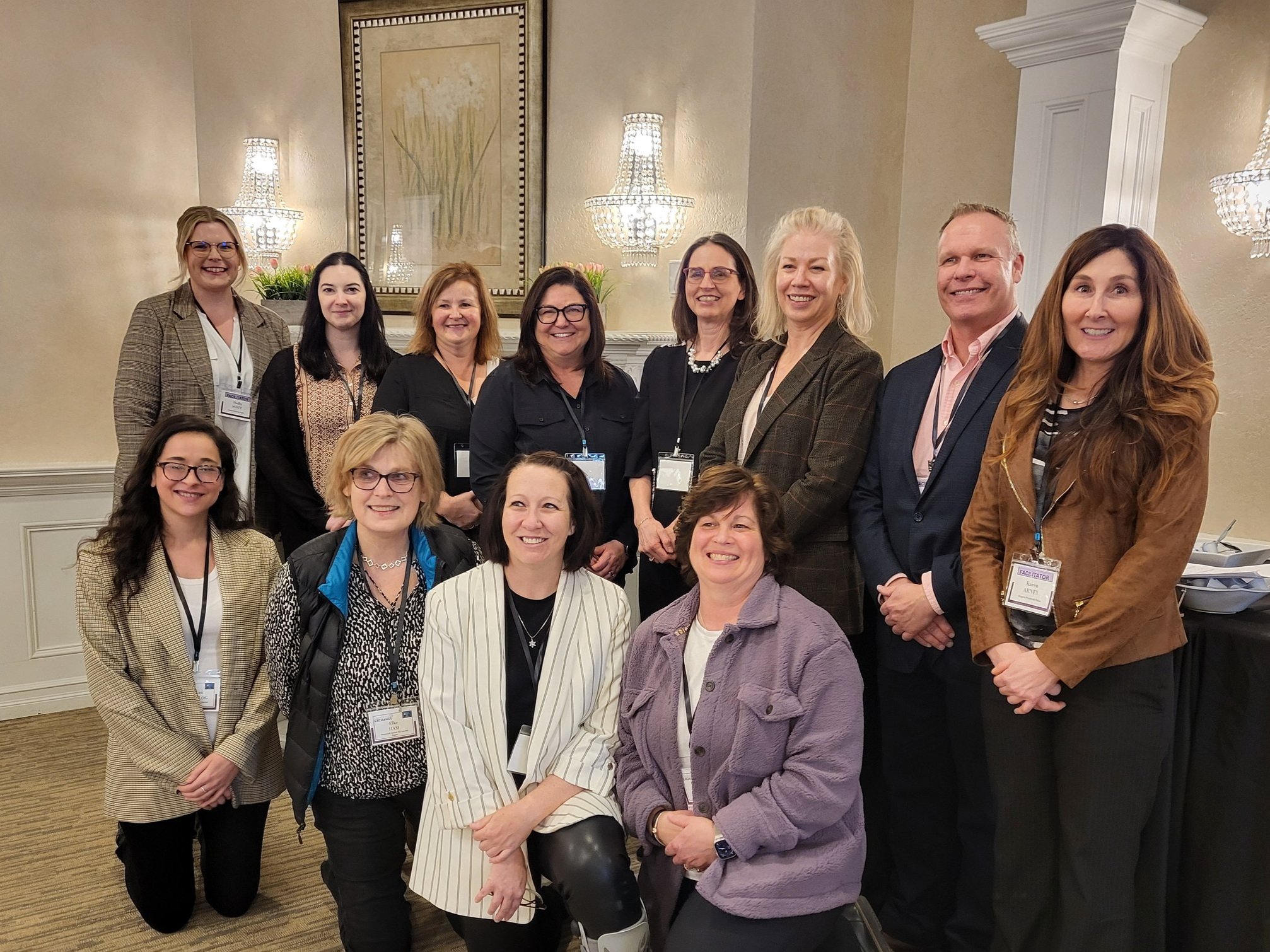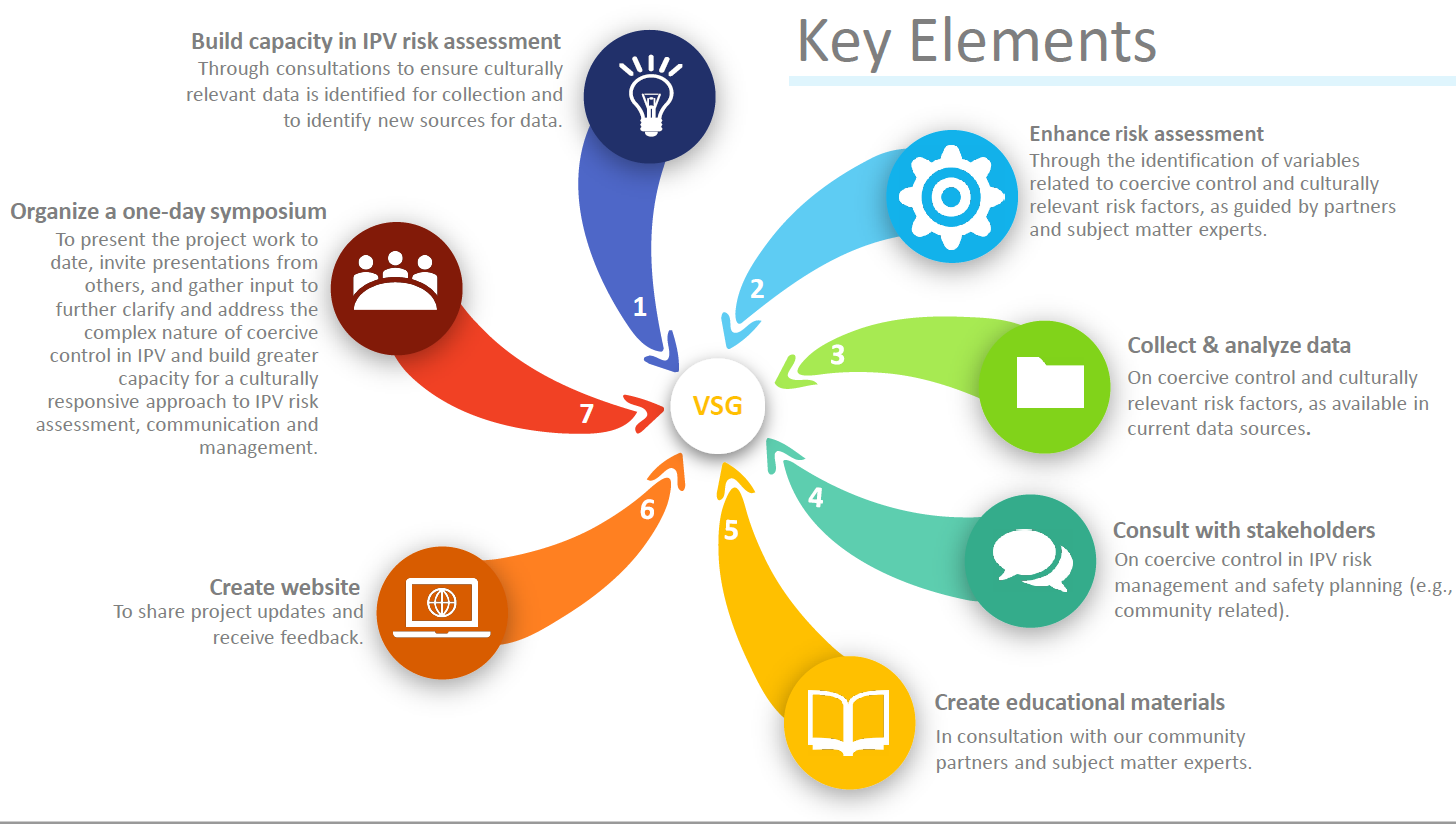
IPV risk assessment and management:
A culturally responsive approach
Photo by @tjholowaychuk
This project springboards from the CELIA research and will build capacity in data collection, develop partnerships with Indigenous communities and service providers, and upscale knowledge translation to create tools and resources based on a culturally responsive understanding of risks.
The project is led by Angela Eke, Ph.D. (OPP), Zoe Hilton, Ph.D. (Waypoint), Charmaine Nolan from the Barrie Native Friendship Centre (BNFC) and Natalie Snow, Ph.D., from Chiefs of Ontario (COO), and receives financial support through the
Project Overview
-
Background
Risk appraisal helps identify victims in greatest need of safety planning and protection through high-risk protocol teams. Over-responding to lower risk cases can add to the operational burden of IPV. Inability to identify higher risk cases can mean missed opportunities to prevent re-victimization
-
Coercive Control
Coercive control, such as limiting access to friends, finances, and movement, may be a risk factor for severe IPV and intimate partner homicide. This project uses detailed measures of coercive control and involves a more in-depth examination of relationship information through police records, and will be studying coercive control across gender and sexual identity.
-
Indigeneity – A Priority for Victim Services
Indigenous women in Canada face a much higher rate of gender-based violence victimization than nonIndigenous women. Northern communities with a high proportion of Indigenous residents have the highest rates of police-reported IPV. Although violence risk assessment tools can work equally well for Indigenous and nonIndigenous individuals, some risk factors may not be as strongly related to IPV among Indigenous individuals. Moreover, these items may perpetuate racial stereotypes.
Project Goals and Activities
BNFC and COO Partners
Charmaine Nolan
Ms. Nolan is the Justice Program Manager at the Barrie Native Friendship Centre. She’s educated as a law clerk and spent 20 years in Human Resource Management before making a career change to assist our Indigenous community who are involved within the Criminal Justice system.
She is passionate about assisting Indigenous people victimized by Human Trafficking, Sexual Assault and other crime. She participates on several committees including Barrie Police: Project Safe Horizon anti-human trafficking initiative, OPP Central Region Collaborative Sexual Assault Review, Barrie Police Sexual Assault Review and a Sex Trade Worker Committee.
Charmaine is an Indigenous woman with Interior Salish heritage from, Lillooet, British Columbia.
Natalie Snow, PhD
Dr. Snow is a Data Consultant with the Chiefs of Ontario working in Education. While at the Chiefs of Ontario, she has co-authored a report on post-secondary education and is currently conducting a study on special education in First Nation communities. Dr. Snow teaches full-time in the Criminal Justice Degree Program at Humber College. Her research focuses on sexual violence, victimization and criminalization, and Indigenous criminology. Dr Snow also works with the Canadian Center for Women’s Empowerment (CCFWE) as the Director of Research and Education. CCFWE focuses exclusively on economic abuse within intimate partner relationships. In her role, she has completed a national study exploring economic abuse from the perspectives of social service providers, victims, and financial institutions. She also develops and conducts training on economic abuse for various sectors.
Building a Culturally Responsive Approach to Intimate Partner Violence
A Knowledge Exchange Event, March 27, 2024
A Knowledge Exchange event on Building a Culturally Responsive Approach to Intimate Partner Violence (IPV) was held on March 27th, 2024, in Orillia, Ontario and funded through a Victim Support Grant (VSG) awarded to partners from the Barrie Native Friendship Centre (BNFC), Chiefs of Ontario (COO), the Ontario Provincial Police (OPP), and Waypoint Centre for Mental Health Care. There were over 60 participants representing 27 policing and community service organizations across Ontario.
“Loved the engagement of all participants.”
In the morning, Waypoint’s Dr. Zoe Hilton gave an overview of the research conducted as part of a 25-year collaboration between OPP and Waypoint, including development of the ODARA and the current research CELIA IPV project. OPP Research Coordinator Dr. Angela Eke spoke about the goals and purpose of the VSG in supporting the development of a partnership to begin to bridge the gap between current IPV research and the need for attention to risk factors and case management specific for Indigenous communities. Dr. Natalie Snow and Rebekah Ederer from the COO presented on the results of their Risk Assessment Danger Assessment Tools (RADAT) project. They described their cross-province consultation with Indigenous community services, training in several risk assessment and victim safety planning tools including the ODARA, and the approach taken in the COO’s new toolkit.
“Natasha made a profound impact on why this work and progress is so important.”
In the afternoon, attendees participated in two breakout sessions. The first gathered people into tables of either policing services or community services to discuss barriers and challenges they experience or foresee in building capacity for a culturally responsive approach to coercive control, IPV risk assessment and case management. The second session involved mixed tables, so participants could discuss solutions and ways to overcome barriers. The ideas from each table were shared with the larger group and posted around the room, with time given for individuals to build on any points by adding sticky notes with their comments. The breakout groups proved to be highly interactive, with people from different work areas discussing and identifying new ideas about how services can interact and collaborate. All the discussion points and suggestions are being reviewed to identify themes and directions in a report that will be shared back with stakeholders and placed on the CELIA website as well as the OPP Intranet site.
“ We all face the same challenges. We all care. We need to work together to facilitate the necessary changes.”
This event highlights the benefit and strengths of our partnerships. The VSG work will be further extended to a national level in June, 2024 when the VSG partners will present a panel discussion at the Canadian Psychological Association conference. It also provides a foundation for increased grant funding, and plans for a new funding application are underway to build on the ideas and momentum from this knowledge exchange day.
“Excellent to have the opportunity to meet and discuss ideas/concerns by other agencies.”
The day began with a warm welcome and land acknowledgement by OPP Superintendent Jennifer Spurrell, followed by a smudging ceremony by Charmaine Nolan of the BNFC, and a guided wellness activity led by OPP mental health clinician, Linda Burrell.
“Good discussions. Was enriching to hear different perspectives of the same issue.”
With the support of Charmaine Nolan, Natasha, a peer support lead from the BNFC, shared her personal experience of IPV and her interactions with police and victim services. They used an ethical interview approach in which Natasha responded to a series of prepared questions posed by Charmaine. With the emotional support of Charmaine, Natasha described her experiences, some involving extensive violence; these experiences also spoke to her strength and survival and she highlighted occasions when she received especially helpful support from police and community services, and areas where they could also improve their responses. Knowledge Exchange participants particularly noted how important and helpful it was to learn from Natasha.
“ It was good to have so much relevant input from different perspectives/fields of expertise.”
The contributions made by attendees to the conversation around risk assessment research and the challenges faced with both assessing and responding to risk, has already been significantly meaningful to our research. We greatly appreciated the time and participation of each attendee; their input and knowledge are invaluable and we respect the work each do, every day. We also greatly appreciated the support of our facilitators and planning team, with a big thank you to OPP members: Karen Arney, Shelby Scott, Mirna Batinic, Bill Gofton, Valerie Thornton, Linda Cowie and Leslie Jean.
“It was refreshing to be able to speak and build relationships with partners, opposed to sitting and looking at a slideshow all day. It was a great day. Thank you!”

Knowledge Exchange Event organizers and facilitators









